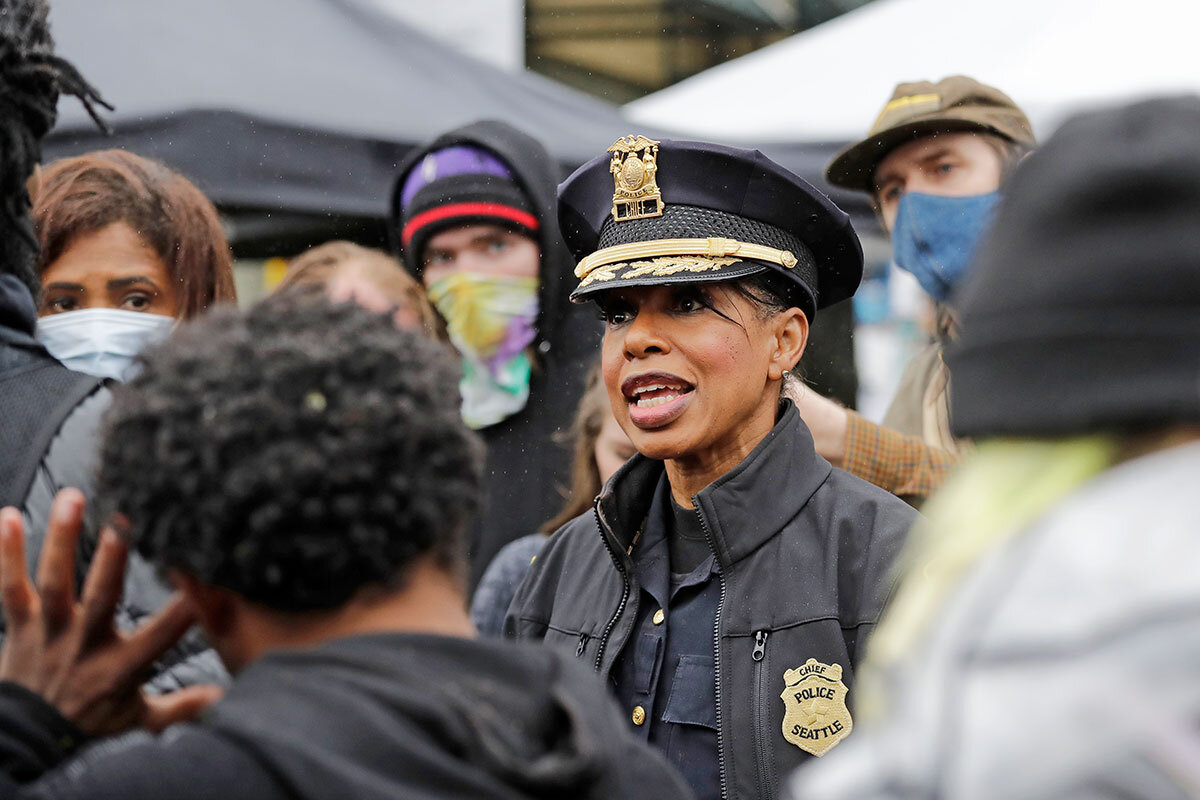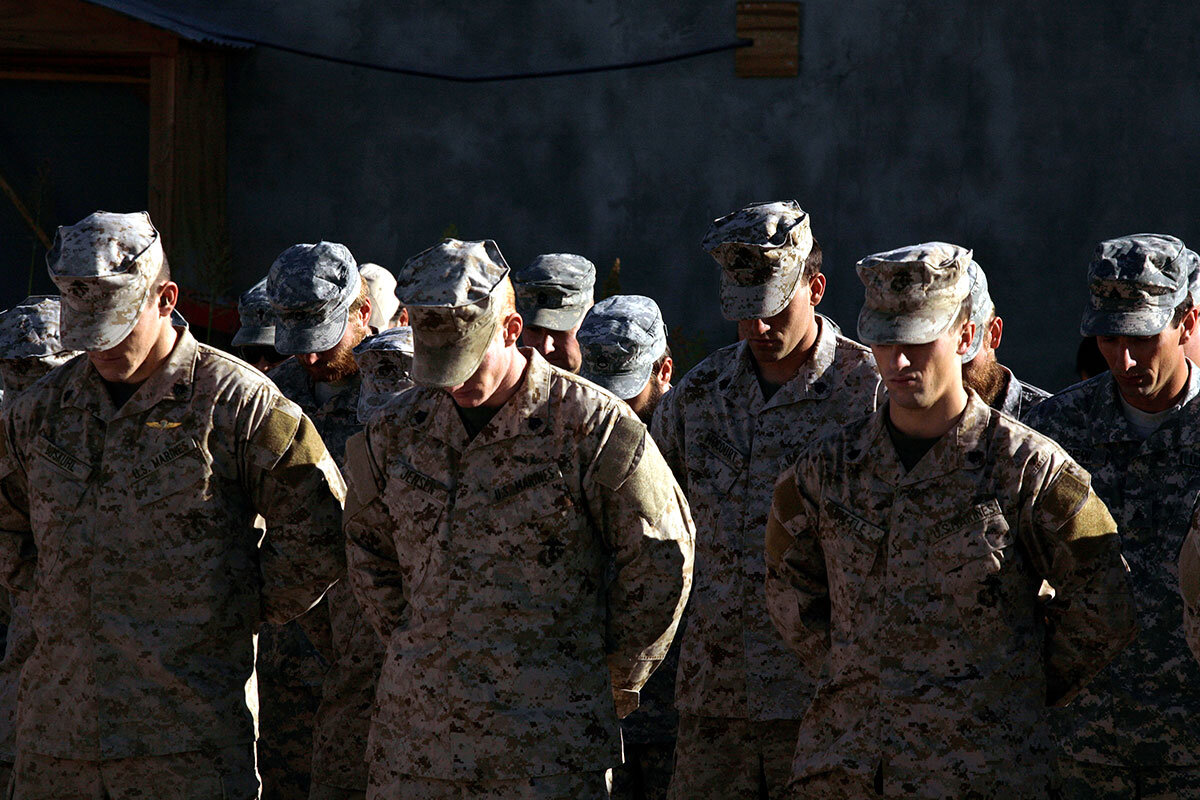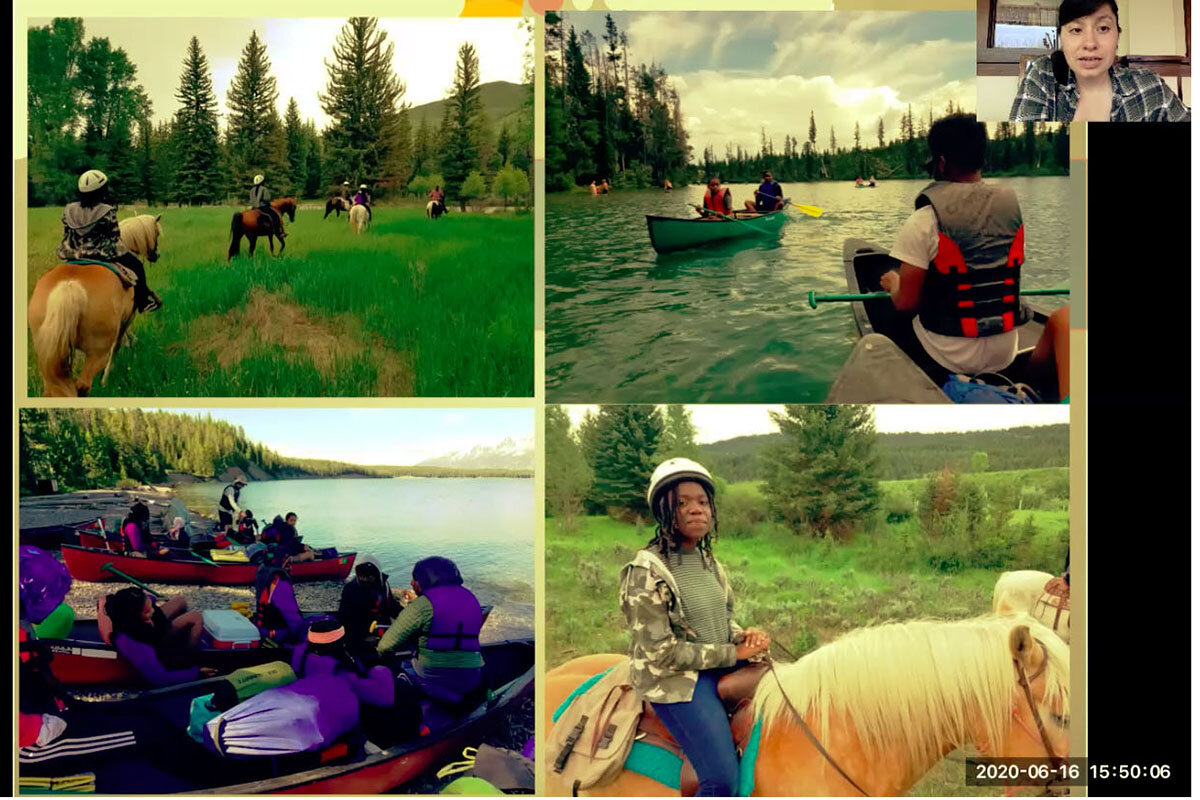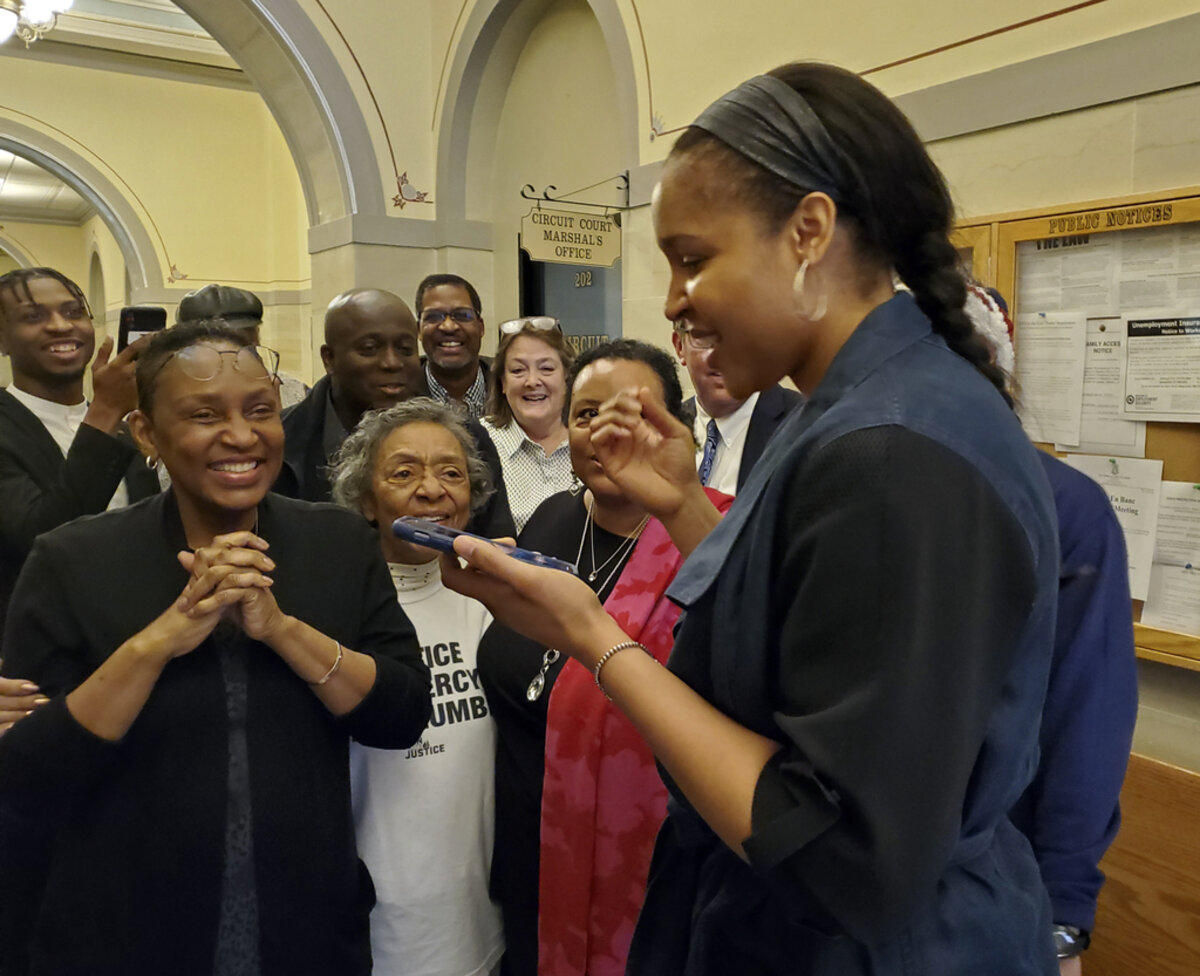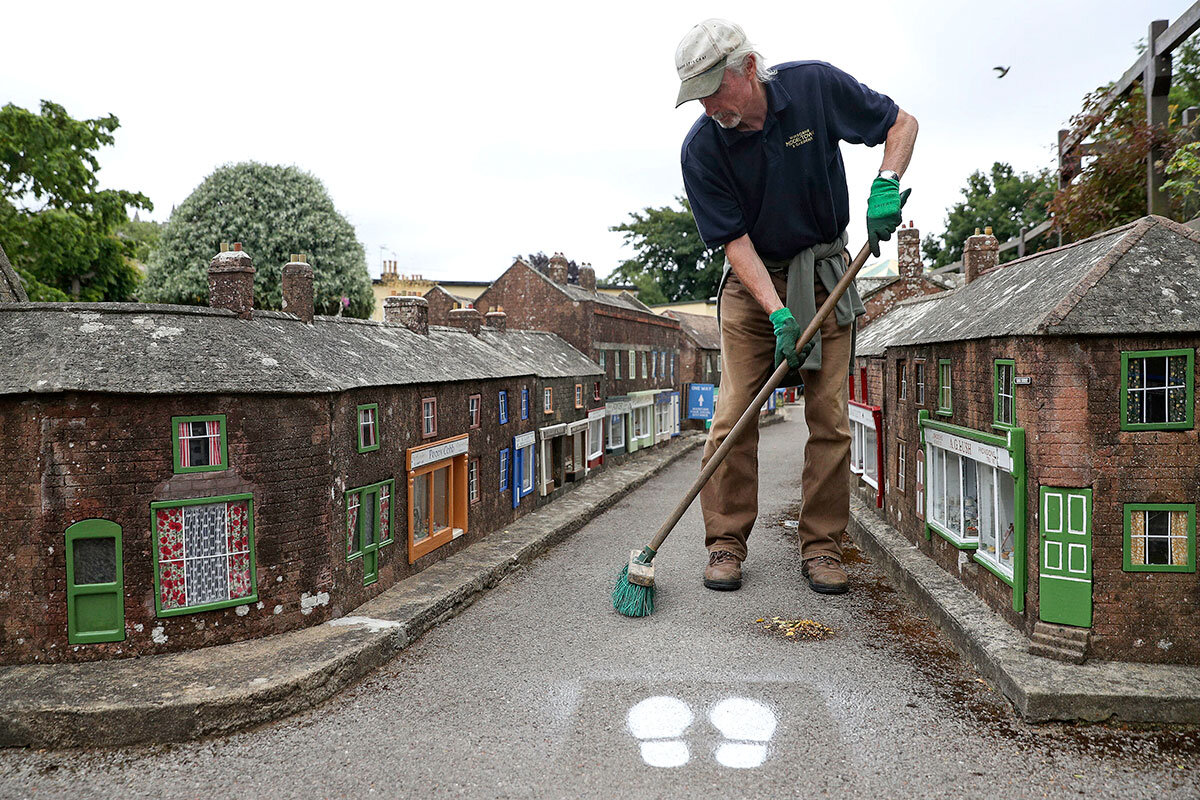Few people are forced to grapple with the complexity of this summer’s protests and calls for racial justice as are Black police officers. One week after Seattle cleared demonstrators’ occupation, its police chief – one of just a few women of color leading U.S. departments today – takes stock.
Monitor Daily Podcast
- Follow us:
- Apple Podcasts
- Spotify
- RSS Feed
- Download
 Peter Grier
Peter Grier
America’s rural areas don’t have well-established relief organizations, like many big cities do. So, when the pandemic hits, residents do what they’ve always done – come together as a community.
Utah’s Cache County is a great example.
In early June about 300 workers at the JBS meatpacking plant in the small town of Hyrum tested positive for COVID-19. Many were from the area’s Latino and refugee communities.
The evening the results came in, Lizette Villegas’ phone began to buzz like crazy. She’s a well-known volunteer who’s trusted in the community, according to The Washington Post. She answered worried questions until the wee hours about how affected workers and their families could isolate and respond to their diagnoses.
But she couldn’t handle it all herself. Other helpers and local organizations got involved. By the next day people were dropping off cleaning supplies at affected households. The day following food began to arrive.
Pretty soon there were decentralized drop-off points for donations. Area churches got involved. A Church of Latter-Day Saints in Logan donated space for organizing supplies. It began to resemble a grocery store warehouse.
The connections between volunteers began to resemble a spider’s web as food pantries got involved. The ad hoc network served the widespread area more effectively than a single relief group or government agency would have, according to Ms. Villegas.
A month later she’s still getting a steady flow of incoming messages. But now many are from people who want to help the affected workers.
“We’re just trying to do everything so they stay home, stay safe,” Ms. Villegas told a local ABC affiliate. “We’ve even built busy kits for the kids, to let their parents rest, because they’ve been sick.”




